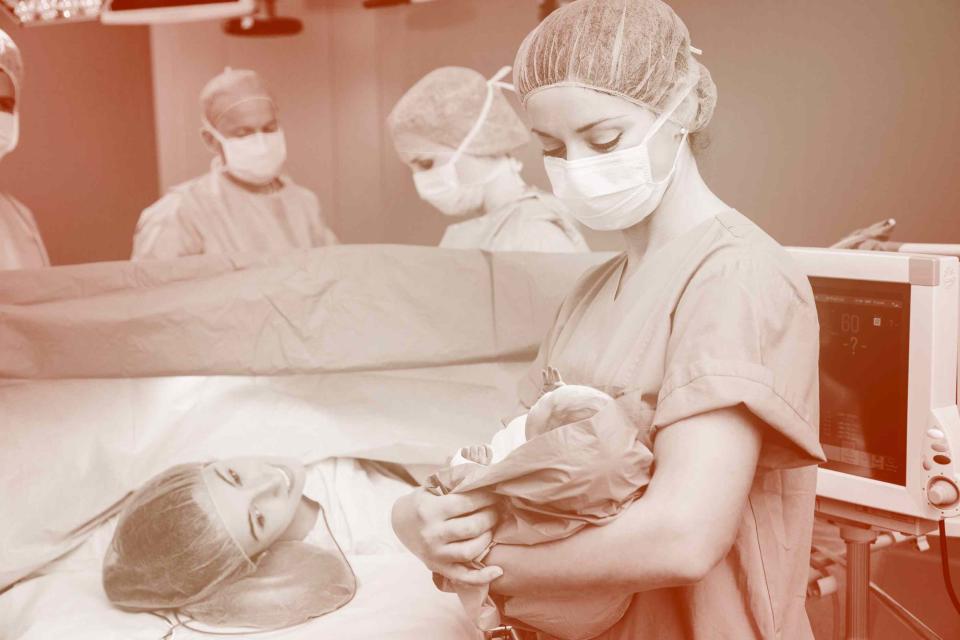What Are the Signs of Infection After a C-Section?

Millions of babies are delivered via Cesarean section, or C-section. According to Centers for Disease Control and Prevention, 31 percent of American babies are born this way. And while Whitney B. You, M.D., MPH, an assistant professor in the Department of Obstetrics and Gynecology at Northwestern University's Feinberg School of Medicine, says Cesarean sections are generally safe, infections can occur. Approximately 6 to 11 percent of individuals will get a C-section infection, be it in the uterus, belly, or at the incision site.
Here's what you need to know about the signs of C-section infection, and how to properly prevent and treat them.

Getty Images
What Are the Signs of C-Section Infection?
A C-section scar can get infected if bacteria enters it—and, if this bacteria spreads, a uterine or abdominal infection might develop. Symptoms usually appear within a few days of surgery.
Signs of an infected C-section incision include:
Redness around the incision
Abnormal swelling around the incision
Fluid leaking from the wound
Common signs of an internal or uterus infection after a C-section include:
Increasing abdominal pain
Foul-smelling vaginal discharge
Risk Factors for C-Section Infections
The risk of infection depends on the reason for the C-section, says Pamela Promecene, M.D., professor and obstetrician with McGovern Medical School at UTHealth/UT Physicians in Houston. For example, a planned C-section has a slightly lower risk than an emergency C-section, since doctors and patients have more time to prepare for the surgery.
What's more, certain parental factors increase the risk of infection after a C-section, including obesity, poorly controlled diabetes, having a previous C-section, taking immunosuppressant medication, and smoking, says Dr. Promecene.
Individuals with a penicillin allergy may also have higher odds, adds David Colombo, M.D., director of maternal-fetal medicine at Spectrum Health. "When giving antibiotics, we adjust the type we give to the patient based on their weight and allergies. If someone is unsure if they have a penicillin allergy, they should talk to an allergist to get tested," he says.
Can You Prevent a C-Section Scar Infection?
If you have a planned C-section, the doctor may request that you shower with a special antibacterial soap prior to the procedure. Patients are usually discouraged from shaving beforehand, Dr. Colombo adds. And "antibiotics are given routinely before Cesarean section to decrease the risk of uterine infection," says Mabel Wong, chief of the OB-GYN department at Kaiser Permanente in Hawaii.
Patients with diabetes can also take measures to limit their chances of infection. "If you have diabetes, it is best to control your sugars in the time just before and just after surgery," says Dr. Promecene. "The doctor can guide you on how to best manage your sugars."
Once you head home from the hospital, it's important to follow wound care instructions to prevent an infected C-section incision. This usually means cleaning the scar and changing the bandages regularly. You should also avoid placing the baby's weight directly on your wound.
How Are C-Section Infections Treated?
A C-section incision infection or uterus infection will likely be treated with antibiotics—intravenous ones if you're still at the hospital and prescribed ones if you're home. Doctors will choose the correct antibiotic for your specific infection. In severe cases, they may conduct a small surgery to prevent further complications.

